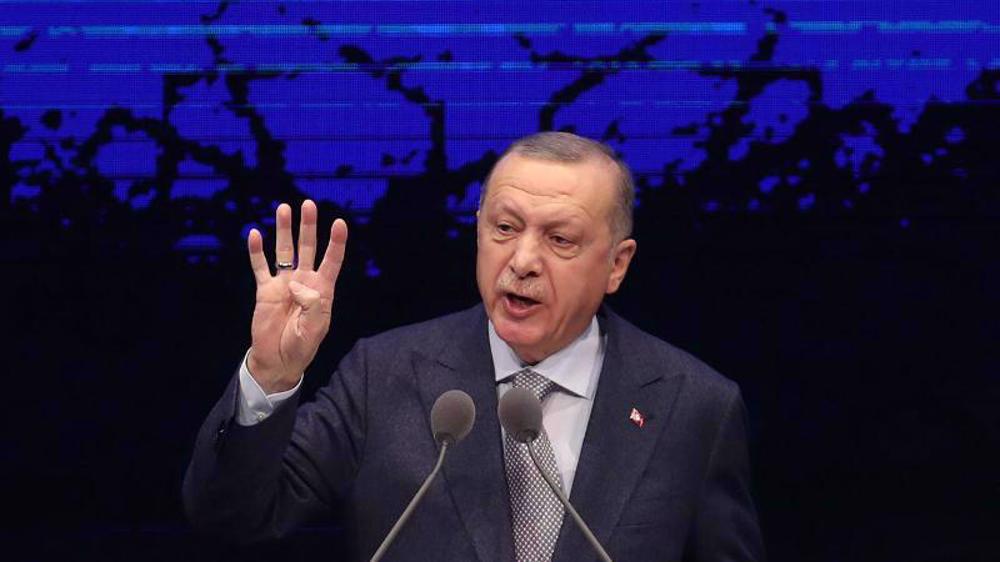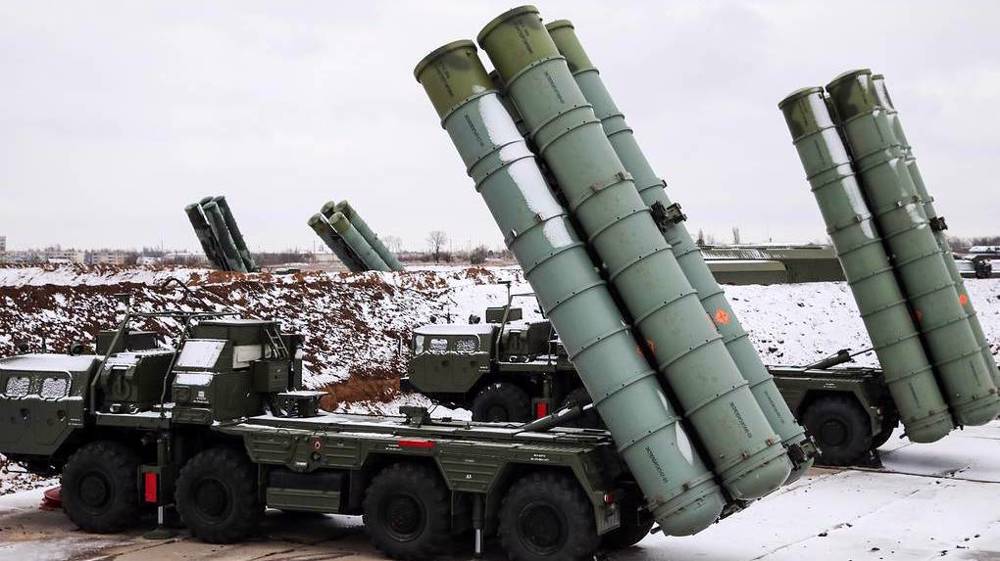Turkey slams EU’s ‘biased and illegal’ approach, sanctions threat
The Turkish foreign ministry has slammed the European Union's approach towards Turkey’s persisting dispute with Greece and Cyprus in the eastern Mediterranean as "biased and illegal," calling on the Western bloc to instead act as an honest broker.
Ankara’s Friday rejection of EU mediation efforts in the dispute came after leaders of the bloc agreed during a summit on Thursday to formulate limited sanctions against Turkish individuals over an energy exploration row with Athens and Nicosia, deferring any harsher steps until March as the countries sparred over how to deal with Turkey.
Calling on the EU to act "with principles, strategically and with reason," the ministry further added in a statement that a proposed conference with all eastern Mediterranean countries would serve as an opportunity to tackle maritime issues in the region, reiterating that Ankara was prepared for talks with Greece without any preconditions.
Turkey insists it is operating in waters on its own continental shelf or areas where Turkish Cypriots have rights. This is while its President Recep Tayyip Erdogan underlined on Wednesday that he was not concerned by any sanctions the EU may decide to impose.
Shying away from its October threat to consider wider economic measures against Turkey, the summit statement by EU leaders paves the way to punish individuals accused of planning or taking part in what the bloc alleges as unauthorized drilling off Cyprus.
Such steps, however, did not go far enough for Greece, with envoys saying the country expressed frustration that the bloc was hesitant to target Turkey’s economy over the hydrocarbons row, as Germany, Italy and Spain pressed for further diplomatic efforts, according to a Reuters report.
“It is very clear what is at stake here: the credibility of the European Union,” Greek Prime Minister Kyriakos Mitsotakis emphasized in a video message before the summit, which one diplomat cited in the report described as a “heated debate.”
France, which remains enraged by Turkish foreign policy in Syria and Libya, has tried to push the EU to consider sectorial sanctions against the Turkish economy, but lacks much support.
Moreover, a French official further said the decision was, for now, a “response to the worsening situation” with Ankara.
The EU asset freezes of yet unidentified Turkish individuals and companies will be in addition to two officials already on a sanctions list set up in November 2019, according to the report.
Meanwhile, pointing to the sensitivities of punishing NATO member Turkey -- which still remains an EU candidate country -- another diplomat also stated that there were largely fruitless “long discussions about words” in the final draft of the EU statement, which accused Turkey of “provocations.”
EU leaders now expect the bloc’s Foreign Policy Chief Josep Borrell to come up with a broad overview of EU’s political, trade and economic ties with Turkey by next March.
That could allow for the EU to either broaden sanctions or offer closer trade relations via an expanded customs union, depending on Ankara’s willingness to help end tensions in the eastern Mediterranean, avoiding further measures, diplomats added as cited in the report.
The Greek Cypriot government began exploring for natural gas with a US company in 2011 despite warnings from Turkey, which does not recognize the divided island’s status and claims exploration rights.
Tensions intensified in August when Ankara dispatched a seismic exploration ship into Cyprus’ exclusive economic zone and also in waters claimed by Greece. The EU, led by Germany, has been trying to negotiate a settlement but without success.
US and UK launch new airstrikes on Yemeni capital
Homelessness up 18 percent in US in last year
VIDEO | Yemenis hold nationwide rallies in support of Palestine
Israeli aggression against Gaza hospitals ‘flagrant violation’
More pro-Gaza rallies held across Yemen
'Hunger is everywhere in Gaza': UN food agency
Iran dismisses Arab League accusations, says wants stability in Syria
Syria's HTS militants seek ‘peace’ with Israel














 This makes it easy to access the Press TV website
This makes it easy to access the Press TV website